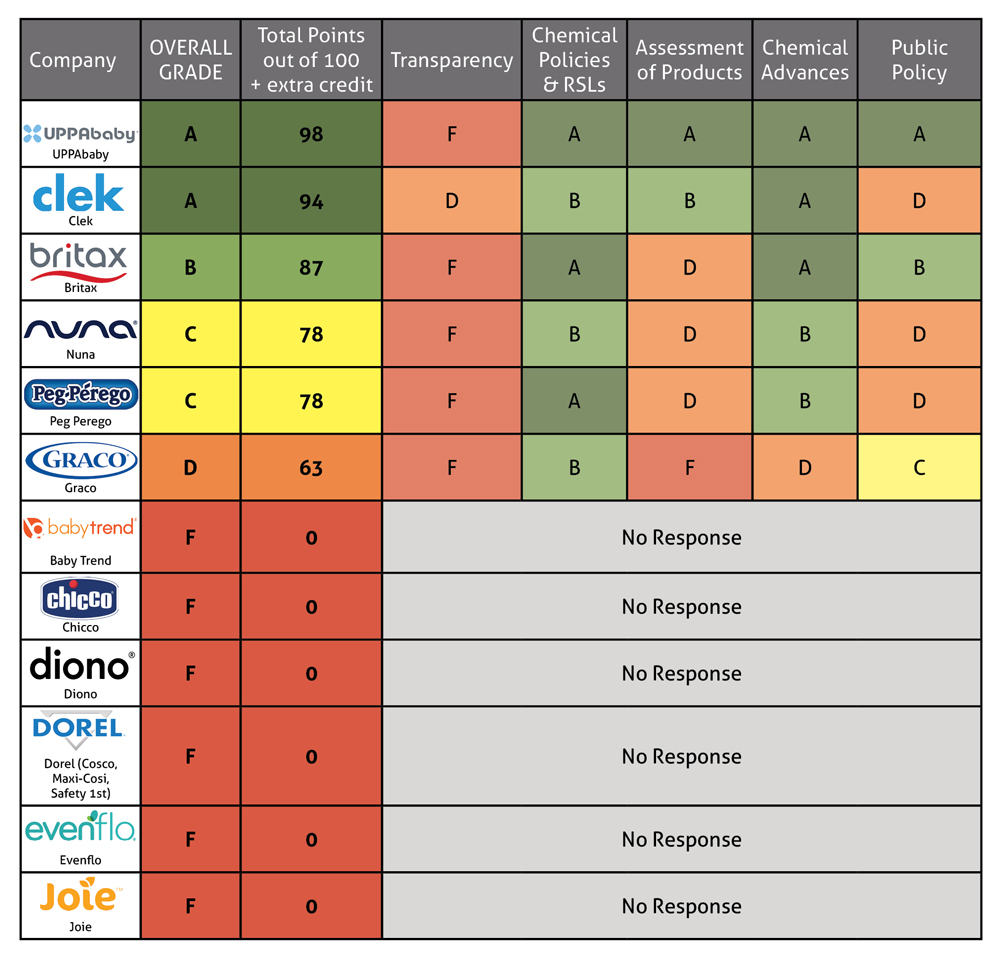The Healthy Stuff project is fundamentally about helping companies to change their product designs to produce healthier products that do not contain toxic chemicals. To create a healthier product, manufacturers use design to reduce or eliminate the impacts of hazardous chemicals throughout the lifecycle of a product. Companies can implement a chemical policy to help them achieve chemical safety in their supply chain and across the lifecycle of their products.
A chemical policy outlines what types of chemicals will be avoided by a manufacturer and how that will be enacted. The Ecology Center has created a model chemical policy and shared it with car seat manufacturers to use as a starting point. A chemical policy can include information on how or why certain chemicals are added to the company’s Restricted Substances List (RSL). It also can include a company’s RSL.
A good chemical policy is transparent (public), restricts chemicals of concern, and includes assessment strategies to find safer alternatives to harmful chemicals. In order to fully optimize a product, like a child’s car seat, both the companies and the public need better data on chemical content and hazards. A chemical policy can outline the strategies a company uses to gather data and chemical content from its suppliers. A clear and transparent chemical policy will effectively convey this information to the public.
Consumers desire transparency and disclosure from companies. Disclosure helps educate consumers and ultimately changes the way products are designed.
In August 2018, we invited twelve children’s car seat companies to complete our Children's Car Seat Corporate Chemical Policy Survey, the purpose of which was to evaluate their corporate chemical policies and practices. This report, Making the Grade; How children's car seat manufacturers measure up on chemical policy and transparency, provides our assessments of their responses and scores to rank their responses. The results of this survey do not represent an endorsement or third-party certification from the Ecology Center or its Healthy Stuff project.
In the survey, companies were asked a total of 22 questions regarding transparency, internal chemical policies, assessment of products, chemical advances, public policy advocacy, and (for extra credit) other environmental practices. Six out of twelve companies responded. Scores varied in most categories. But in transparency, no company received a grade higher than a ‘D’ due to lack of public communication about chemicals and their use. None of the companies have a public Restricted Substances List. Most do not have a public chemicals policy. A few have a public statement on chemicals.
We celebrate the companies that are rethinking their designs on certain seats to avoid harmful chemicals. Some companies are utilizing wool or high-density polyester to create seats that are flame-resistant without added chemicals. Some are also avoiding stain-resistant chemical coatings on seats and making seat covers easily removable and washable. We urge these companies and all companies to expand their achievements to all of their marketed seats and clearly communicate with the public about that process.
The process of creating and implementing this survey has generated positive dialogue with car seat companies about chemical policy and practice. We are grateful to all of the companies and the people within those companies who took the time to complete the survey and have conversations with us.



